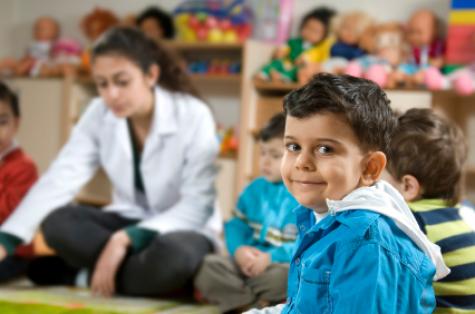A national project that builds the resilience of young children in preschools and long day care and reduces their risk of experiencing mental health problems has delivered significant results according to an evaluation by Flinders University. Motherpedia wrote about the program over a year ago.
KidsMatter Early Childhood has improved the mental health and wellbeing of children, helped staff care better for children and improved links with mental health professionals.
The Minister for Mental Health, Mark Butler,said KidsMatter Early Childhood promotes positive mental health by developing children’s social and coping skills, providing parents with resources to support parenting, and helping parents and educators to respond effectively to children experiencing difficulties.
He said the Flinders University researchers identified a number of positive outcomes:
- One in six children identified as experiencing mental health difficulties at the commencement of the project were no longer classified as experiencing difficulties at its conclusion
- Staff capacity to recognise and assist children experiencing mental health difficulties increased 20%
- The project significantly improved educators’ knowledge regarding young children’s mental health
- The project improved the quality of educators’ relationships with children in their care.
“KidsMatter Early Childhood builds upon the success of the KidsMatter Primary that has been implemented across almost 1000 Australian primary schools, with children and staff at those locations experiencing similar benefits,” Mr Butler said.
“This is the first national health promotion, prevention and early intervention initiative developed specifically for early childhood education and care services.
“It’s great news that it has been so successful and will remain an important part of the Government's $2.2 billion mental health reform plan. The early childhood project has attracted significant overseas interest from educators looking to adopt it in their region, particularly in Asian countries such as Thailand and Singapore.”
The two-year evaluation was conducted in the 105 childhood services across Australia where KidsMatter Early Childhood is present, collecting data from over 1,000 staff and 5,000 parents.
One of the program designers said it has helped provide teaching staff with skills to work with children who experience difficulty.
“Since the project started here, we’ve had a huge injection of knowledge that has enhanced staff skills in settling children and their families,” said Tessa McGavock of the University of Western Sydney.
“The children are now more able to vocalise the emotions that are driving their behaviour and generally separate from their parents with greater ease. Children also know now that it’s ok to feel angry. It’s what you do with that anger that is most important.”
KidsMatter Early Childhood is now being rolled out to an additional 130 early childhood education and care services. To find out more, or to check on which schools will be involved, visit www.kidsmatter.edu.au

















__small.png)










